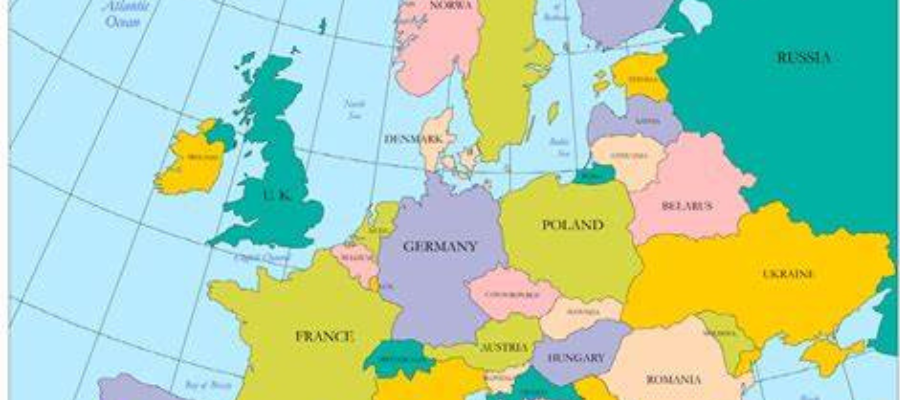Studying for a PhD in Europe: What to Expect


One of the most challenging but rewarding academic pursuits is to study for a PhD. For doctoral students all over the world, Europe is now a more appealing place to pursue doctoral studies. With its long scholarly tradition and open funding opportunities to its lively cultural scene, Europe provides a distinctive PhD experience. But what then do you have to look forward to if you’re going to pursue your doctorate there?
Let’s dissect the basics.
1. An Organized But Adaptable Methodology for Research
Perhaps the most characteristic aspect of a European PhD is its emphasis on autonomous research. While PhDs in the U.S. or other nations tend to involve considerable coursework and organized courses, PhDs in Europe are usually research-based from the start.
In the majority of European nations—such as Germany, the Netherlands, and Sweden—students need to begin work on their dissertation as soon as they are accepted for a program. There might be the odd seminars, workshops, or transferable skills courses here and there, but the primary focus is on developing novel research.
This model suits self-driven individuals who are clear about their research interests and ready to immerse themselves in long-term projects. However, it also means students need to be self-motivated and capable of managing their time and resources effectively.
2. Varied PhD Structures Across Europe
Not all European countries follow the same model, so where you study significantly affects your experience. For example:
- Germany generally provides two styles of PhDs: the traditional “individual doctorate” and more formalized “graduate school” programs. The former enables one-on-one supervision with complete autonomy, whereas the latter involves cohorts, coursework, and schedule plans.
- The UK generally employs a three-year PhD system with a mix of research and periodic teaching obligations. Some programs start with a Master of Research (MRes) or an integrated year of coursework.
- The Netherlands and Scandinavia have the attitude of treating PhD candidates as junior staff. You’re usually remunerated with a salary, assigned work contracts, and asked to make contributions to teaching or administrative work.
This variation can be both advantageous and disadvantageous. On the one hand, students may select a country that suits the working style they prefer; on the other, it’s essential to be aware of the particular expectations prior to applying.
3. Tuition and Funding: Accessible and Affordable Choices
Affordability is one of the largest attractions of pursuing a PhD in Europe. Tuition is low or zero in most nations, particularly for citizens of the EU/EEA. Even foreign students have cost-effective choices when compared to studying in America, Canada, or Australia.
- Germany, for example, has low to no tuition at state universities, including for non-EU students.
- In France, public universities also have low tuition fees, whereas research-oriented institutes can give grants or stipends.
- Nordic nations such as Finland and Sweden usually provide fully funded positions with salaries and benefits and therefore tend to be highly competitive.
Funding for many students is provided by government grants, university fellowships, or project scholarships. In a number of instances, particularly in engineering and the sciences, students are employed as research assistants or doctoral researchers and are paid a monthly salary along with health insurance and pension coverage.
4. Academic Culture: Independence and Mentorship
Academic culture in Europe encourages intellectual freedom and independent thought. Supervisors (or “doctoral advisors”) usually guide students without micromanaging them. While this can be liberating, it may also feel isolating for those who are used to more frequent supervision.
Frequent meetings with your advisor will be determined by your rapport and the type of your research. In contrast to organized programs with set milestones, you might be creating your own deadlines and criteria for evaluation—calling for a great degree of self-discipline.
On the positive side, this freedom of academia enables students to undertake interdisciplinary projects, try out new methods, and own their scholarly journey. Further, some universities promote co-publication with supervisors or peers, enhancing exposure and professionalization.
5. Life Beyond the Lab: Culture, Travel, and Lifestyle
One of the biggest advantages of pursuing a PhD in Europe is the lifestyle. Being based in a culturally vibrant, historically rich, and connected continent brings a new dimension to the PhD journey.
- Travel Opportunities: With the Schengen visa, PhD researchers can take for granted traveling across most of the European nations for conferences, workshops, or pleasure. Weekends in Paris, Rome, or Prague are within reach and cheap.
- Cultural Diversity: Europe is rich in languages, customs, and cuisines. Studying there provides international students with the opportunity to experience various cultures, acquire new languages, and establish worldwide friendships.
- Work-Life Balance: In contrast to highly competitive study cultures elsewhere, European universities tend to place a high value on work-life balance. Holidays, maternity/paternity leave, and sick leave are routinely included in PhD contracts.
- Support Services: European universities provide international student services to assist with visas, accommodation, insurance, and integration. In university cities, you’ll see specialized cultural events, language classes, and networking groups.
6. Career Prospects After a European PhD
A European PhD is greatly respected globally and may lead to jobs in academia and industry. Depending on your area of study, you may have great postdoc prospects within Europe or transition into company R&D, consulting, public policy, or startups.
Most European universities are closely connected with local industries and innovation centres, particularly in areas such as renewable energy, biotech, AI, and engineering. Some even incorporate career development training within the PhD to assist students in preparing for various career paths.
It’s also worth mentioning that in certain nations (such as the UK and Germany), possessing a PhD can result in immigration advantages. A large number of states have post-study work visas or “talent” initiatives to keep foreign researchers.
Competition in the academe, however, is still rigorous. Having publications, overseas conference experience, and joint projects will open up your career significantly after graduation.
7. Things to Consider Before Applying
Although advantages of a European PhD are vast, approach the decision strategically:
- Select the proper supervisor and research group. Your advisor’s mentorship style and your working relationship can make or break your PhD experience.
- Know visa rules. Varying by country, they can impact ability to work part-time or include dependents.
- Language. Although most PhDs are taught in English, everyday life might demand that you have some command of the language where you will live.
- Application process. In some nations, you have to approach a potential supervisor directly with a research proposal prior to making an application. Unlike centralized systems, this can take time but is more individualized.
- Funding deadlines. Several fellowships and scholarships have strict deadlines, sometimes a year before the program begins.
Being well-informed and proactive will help you navigate the application process successfully and ensure that you choose the right environment for your academic and personal growth.
Pursuing a PhD in Europe is not merely about acquiring a credential—it’s about embarking on an intellectually demanding, culturally stimulating, and professionally fulfilling experience. With its diversity of programs, low-cost education, profound research culture, and quality of life, Europe continues to be one of the most prudent decisions for doctoral students today.
But this is not for all. It calls for discipline, patience, curiosity, and perseverance. If you’re prepared for that level of commitment, Europe can provide you with a platform to not only acquire a doctorate, but to develop as a scholar, world citizen, and future leader in your area.
Contact Aara Consultancy to navigate!
We provide 360° Solution for your Education Needs. Contact us






